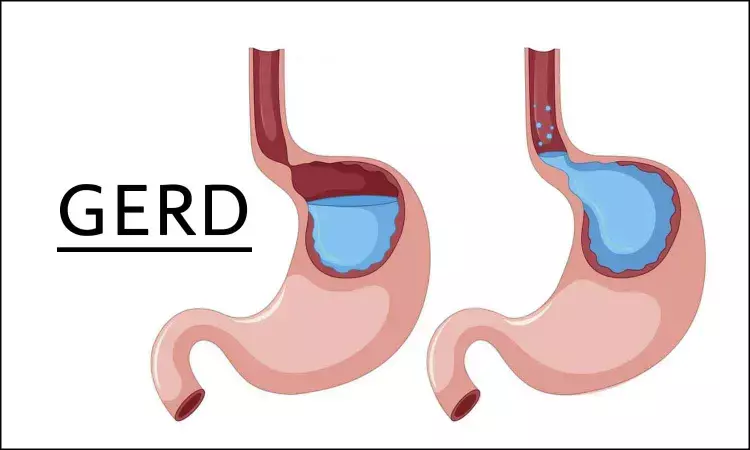- Home
- Medical news & Guidelines
- Anesthesiology
- Cardiology and CTVS
- Critical Care
- Dentistry
- Dermatology
- Diabetes and Endocrinology
- ENT
- Gastroenterology
- Medicine
- Nephrology
- Neurology
- Obstretics-Gynaecology
- Oncology
- Ophthalmology
- Orthopaedics
- Pediatrics-Neonatology
- Psychiatry
- Pulmonology
- Radiology
- Surgery
- Urology
- Laboratory Medicine
- Diet
- Nursing
- Paramedical
- Physiotherapy
- Health news
- Fact Check
- Bone Health Fact Check
- Brain Health Fact Check
- Cancer Related Fact Check
- Child Care Fact Check
- Dental and oral health fact check
- Diabetes and metabolic health fact check
- Diet and Nutrition Fact Check
- Eye and ENT Care Fact Check
- Fitness fact check
- Gut health fact check
- Heart health fact check
- Kidney health fact check
- Medical education fact check
- Men's health fact check
- Respiratory fact check
- Skin and hair care fact check
- Vaccine and Immunization fact check
- Women's health fact check
- AYUSH
- State News
- Andaman and Nicobar Islands
- Andhra Pradesh
- Arunachal Pradesh
- Assam
- Bihar
- Chandigarh
- Chattisgarh
- Dadra and Nagar Haveli
- Daman and Diu
- Delhi
- Goa
- Gujarat
- Haryana
- Himachal Pradesh
- Jammu & Kashmir
- Jharkhand
- Karnataka
- Kerala
- Ladakh
- Lakshadweep
- Madhya Pradesh
- Maharashtra
- Manipur
- Meghalaya
- Mizoram
- Nagaland
- Odisha
- Puducherry
- Punjab
- Rajasthan
- Sikkim
- Tamil Nadu
- Telangana
- Tripura
- Uttar Pradesh
- Uttrakhand
- West Bengal
- Medical Education
- Industry
Posterior partial fundoplication recommended for GERD management: UEG and EAES guideline

UK: A recent article, published in United European Gastroenterology Journal, reports evidence-informed European recommendations on surgical management of gastroesophageal reflux disease (GERD).
The researchers suggest posterior partial fundoplication over total posterior or anterior 90° fundoplication in adult patients with GERD. They also suggest anterior >90° fundoplication as an alternative, although relevant comparative evidence is limited (weak recommendation).
The article mentions that this rapid guideline was developed in line with the highest methodological standards and provides evidence-informed recommendations on the surgical management of GERD. It provides user-friendly decision aids to inform decision-making in patients and professionals.
Various options are present for the surgical management of GERD in adults. Previous systematic reviews and guidelines have compared the effects of total fundoplication compared with pooled effects of different techniques of partial fundoplication.
Considering the above, Sheraz Markar, Nuffield Department of Surgery, University of Oxford, Oxford, UK, and colleagues aimed to develop evidence-informed, trustworthy, pertinent recommendations on the use of total, posterior partial, and anterior partial fundoplications for GERD management in adults.
An updated systematic review, network meta-analysis, and evidence appraisal were performed using the GRADE and the Confidence in Network Meta-Analysis methodologies. For formulating the recommendation, an international, multidisciplinary panel of gastroenterologists, surgeons, and a patient representative reached a unanimous consensus through an evidence-to-decision framework and a Delphi process.
Implications for policymakers
It is suggested that posterior partial fundoplication may perform better than total fundoplication with regards to dysphagia, however with similar effects on reflux control in the long term. Centers offering antireflux surgery may require to include posterior partial fundoplication in their services, and training centers in the field of antireflux surgery may need to integrate partial fundoplications in their future surgical curriculums.
Implications for healthcare professionals
Surgeons performing antireflux surgery are advised to perform partial posterior fundoplication for GERD, as may be associated with a lower risk of long-term dysphagia and short-term complications, and may be associated with a lower risk of operations and major complications, compared to commonly performed total posterior fundoplication. Transition to partial fundoplication does not pose substantial technical difficulties for experienced surgeons performing antireflux surgery.
Implications for patients
Patients with GERD wishing to receive antireflux surgery can be informed that total posterior and partial posterior fundoplications are surrounded by low to moderate certainty evidence for most outcomes and that partial posterior fundoplication confers similar antireflux control than total fundoplication, albeit a lower risk of short and long-term adverse effects and reoperation.
Implications for researchers
Researchers working in the field of antireflux surgery are advised to collect and report a minimum of critical and important outcomes, including major and minor complications, ideally graded using the Clavien-Dindo classification; regurgitation; use of antacids; heartburn; dysphagia; ability to belch; gas-bloat; reoperation and, importantly, quality of life. Development of a core outcome set for antireflux surgery is recommended.
Reference:
Markar S, Andreou A, Bonavina L, Florez ID, Huo B, Kontouli KM, Low DE, Mavridis D, Maynard N, Moss A, Pera M, Savarino E, Siersema P, Sifrim D, Watson DI, Zaninotto G, Antoniou SA. UEG and EAES rapid guideline: Update systematic review, network meta-analysis, CINeMA and GRADE assessment, and evidence-informed European recommendations on surgical management of GERD. United European Gastroenterol J. 2022 Oct 5. doi: 10.1002/ueg2.12318. Epub ahead of print. PMID: 36196591.
Dr Kamal Kant Kohli-MBBS, DTCD- a chest specialist with more than 30 years of practice and a flair for writing clinical articles, Dr Kamal Kant Kohli joined Medical Dialogues as a Chief Editor of Medical News. Besides writing articles, as an editor, he proofreads and verifies all the medical content published on Medical Dialogues including those coming from journals, studies,medical conferences,guidelines etc. Email: drkohli@medicaldialogues.in. Contact no. 011-43720751


